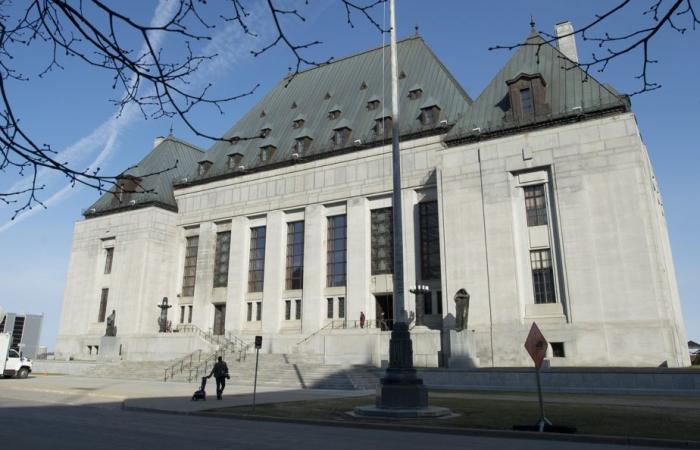The Supreme Court announced Thursday its decision to examine Quebec’s law on state secularism, which notably prohibits the wearing of religious symbols by state employees in positions of authority. Interview with Pearl Eliadis, associate professor at the Max Bell School of Public Policy and lecturer at the Faculty of Law at McGill University.
Published at 5:00 a.m.
Does the fact that the Supreme Court agrees to hear the case indicate that Bill 21 is most likely under threat?
I won’t make any predictions. When it agrees to hear a case, the Supreme Court never specifies its reasons, nor on which aspects it will specifically look into. The fact that she agreed to hear this case means that she has something to say in the matter. This may mean that she wishes to invalidate articles of Bill 21, but not necessarily.
PHOTO ALEX TRAN
Pearl Eliadis, associate professor at the Max Bell School of Public Policy and lecturer at the Faculty of Law at McGill University
It may wish to take this opportunity to clarify certain aspects of law and interpretation, to inform the public of certain matters of national importance, for example. But nothing is known about what is at issue given the large number of constitutional questions that have been raised by the parties.
Read the article “Bill 21 in the hands of the Supreme Court”
For the Supreme Court to invalidate a judgment of the Court of Appeal, must it find points of law on which it erred?
When the Court invalidates a decision of the Court of Appeal, it is because, in its opinion, there were errors on points of law, and it considers that the issue is of national importance.
And law 21 is of this water?
Yes, in several respects. The protection of minorities, the scope in itself of the notwithstanding clause [la disposition de dérogation, qui permet aux différents gouvernements de supplanter temporairement ou contourner certains droits et libertés] and the rights of school boards are at stake. The Court could say that section 33, which concerns the notwithstanding clause, is very clear, as it could circumscribe its recourse.
-The notwithstanding clause is clear, though, isn’t it?
Yes. But originally, many jurists believed that this clause should only be used in exceptional cases. However, in recent years, the governments of Quebec and Ontario have started to use it much more [au Québec, pour des questions linguistiques, notamment]. The situation raises significant problems, particularly when it can lead to situations where rights are violated.
The notwithstanding clause is a highly political question, but for the general public, it is above all the question of minorities and religious symbols which is central here.
Yes. Leaving aside the notwithstanding clause, there is this question of protection of minorities, an unwritten principle of the Constitution. Several of the parties presented arguments on the importance of principles that are not written in the Constitution, but are nevertheless fundamental to the country.
A brief history of a contested law
June 17, 2019: The National Assembly adopts Bill 21 on state secularism.
April 20, 2021: The Law on State Secularism is partially invalidated. The Superior Court of Quebec considers that English-speaking school boards and elected representatives of the National Assembly can be exempted from the ban on the wearing of religious symbols. Quebec announces that it will go before the Court of Appeal.
February 29, 2024: The Quebec Court of Appeal confirms the validity of Bill 21, in particular its provisions prohibiting the wearing of religious symbols.
April 11, 2024: The English Montreal School Board decides to take the matter to the Supreme Court.
January 23, 2025: The Supreme Court agrees to hear the case.







